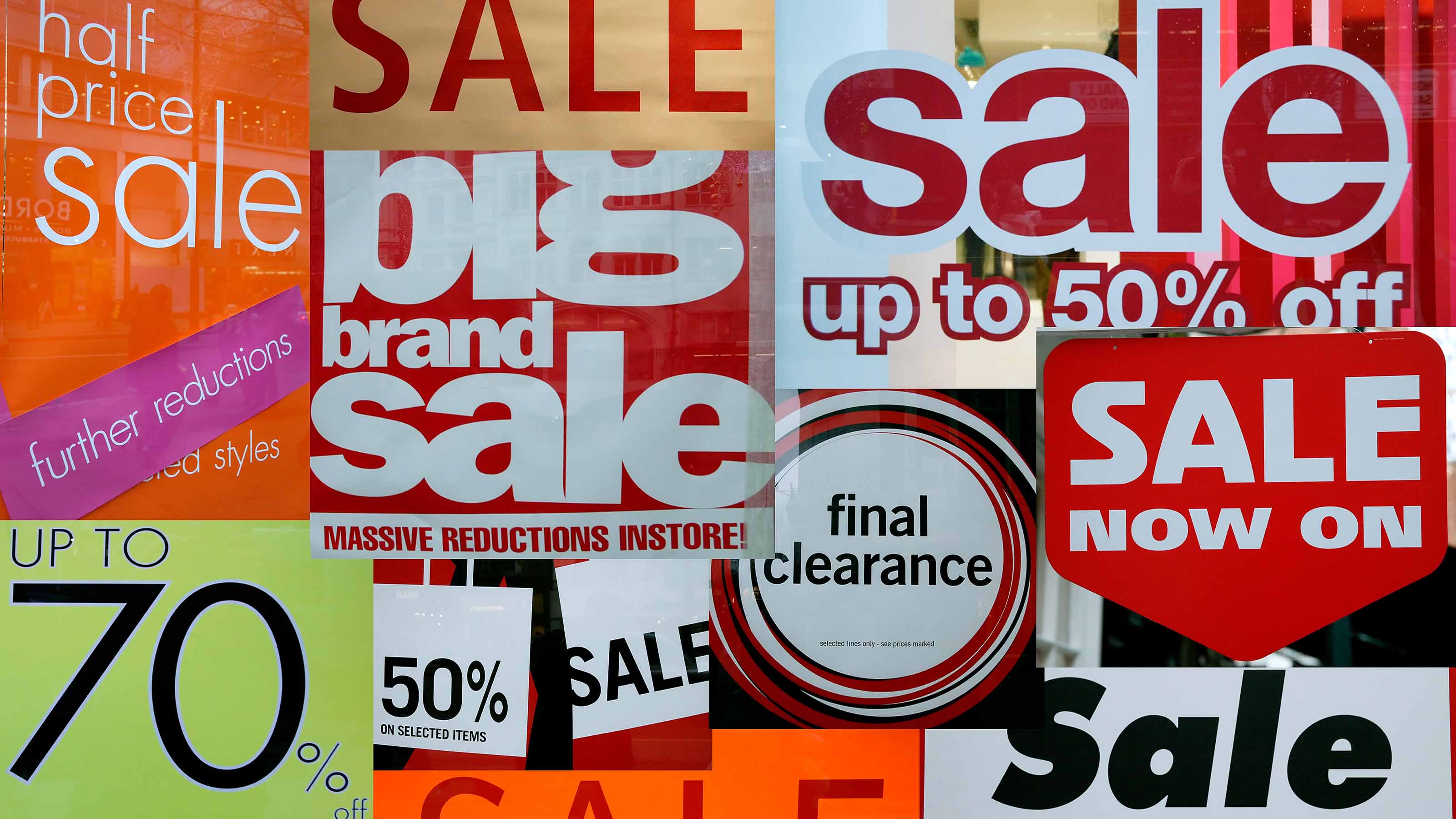James Glassman's 10 Stock Picks for 2011
My 2010 stock selections performed well. Here's a batch of promising picks for the New Year.

Profit and prosper with the best of Kiplinger's advice on investing, taxes, retirement, personal finance and much more. Delivered daily. Enter your email in the box and click Sign Me Up.
You are now subscribed
Your newsletter sign-up was successful
Want to add more newsletters?

Delivered daily
Kiplinger Today
Profit and prosper with the best of Kiplinger's advice on investing, taxes, retirement, personal finance and much more delivered daily. Smart money moves start here.

Sent five days a week
Kiplinger A Step Ahead
Get practical help to make better financial decisions in your everyday life, from spending to savings on top deals.

Delivered daily
Kiplinger Closing Bell
Get today's biggest financial and investing headlines delivered to your inbox every day the U.S. stock market is open.

Sent twice a week
Kiplinger Adviser Intel
Financial pros across the country share best practices and fresh tactics to preserve and grow your wealth.

Delivered weekly
Kiplinger Tax Tips
Trim your federal and state tax bills with practical tax-planning and tax-cutting strategies.

Sent twice a week
Kiplinger Retirement Tips
Your twice-a-week guide to planning and enjoying a financially secure and richly rewarding retirement

Sent bimonthly.
Kiplinger Adviser Angle
Insights for advisers, wealth managers and other financial professionals.

Sent twice a week
Kiplinger Investing Weekly
Your twice-a-week roundup of promising stocks, funds, companies and industries you should consider, ones you should avoid, and why.

Sent weekly for six weeks
Kiplinger Invest for Retirement
Your step-by-step six-part series on how to invest for retirement, from devising a successful strategy to exactly which investments to choose.
For 12 of the past 16 years, I have offered readers ten stock picks for the year ahead, culled from the choices of experts I respect. My long-term record is solid, but my picks for 2010 were especially rewarding, returning an average of 18.6%. By comparison, Standard & Poor's 500-stock index returned 17.3%.
SEE OUR SPECIAL REPORT: Be a Better Investor
When you choose ten stocks, you often get similar patterns of results: a few big winners, a few big losers and a bunch in between. The good news about my 2010 picks is that I didn't have any big losers. My mega winners were Apple (symbol AAPL), which returned 63.4%; New Oriental Education & Technology Group (EDU), a Chinese for-profit education company whose American depositary receipts jumped 47.0%; Dynex Capital (DX), a real estate investment trust that owns mortgages, up 46.3%; and FactSet Research Systems (FDS), a purveyor of financial data, up 37.1%. The worst performer was Gilead Sciences (GILD), a biotech company that lost 14.4% (all figures include dividends and represent performance over the past year through November 5, 2010).
From just $107.88 $24.99 for Kiplinger Personal Finance
Become a smarter, better informed investor. Subscribe from just $107.88 $24.99, plus get up to 4 Special Issues

Sign up for Kiplinger’s Free Newsletters
Profit and prosper with the best of expert advice on investing, taxes, retirement, personal finance and more - straight to your e-mail.
Profit and prosper with the best of expert advice - straight to your e-mail.
The truly breathtaking choice was Dynex, a firm in one of the diciest sectors of the past five years. Making the selection was Jay Weinstein, who heads Oak Forest Investment Management, a Bethesda, Md., firm that specializes in stocks of small companies. Dynex still looks good to me. At a bit less than $11, the stock sells at less than nine times the previous 12 months' earnings and yields 9.3%.
New Picks for a New Year
Weinstein, however, has a new pick for 2011. It's Stealthgas (GASS), the world's largest company in a narrow sector: the shipment of liquid-petroleum byproducts of natural-gas production, such as propane and butane. The stock trades at just below $5. But company officials estimate the value of StealthGas's assets at $12, so they're using the firm's cash to buy back shares. The company is also "forecasting a tightening of supply versus demand," says Weinstein. Based on the forecasts of analysts who cover the company, the stock trades at 11 times estimated earnings for the next four quarters. Be aware, though, that this is a tiny company (its market value, or shares outstanding times share price, is a mere $106 million), so it is fairly risky.
While Weinstein has been my most consistently profitable selector, the grand prize for 2010 goes to John Calamos Sr. and family, for Apple (see Discovering Value: Buy the Fund Company). Over the past 15 years, Calamos Growth Fund has whipped the S&P 500 by an average of eight percentage points per year. Calamos Growth is heavy on computer hardware right now, and one of its biggest holdings is Cisco Systems (CSCO), the leading manufacturer of networking gear. The stock's PEG ratio -- price-earnings ratio divided by the expected rate of earnings growth over the next three to five years -- is 1.1, remarkably low for a dominant high-tech company. Cisco has it all: low price, strong profit increases and a gorgeous balance sheet.
Also impressive in 2010 was Matthews China Fund, the source of my New Oriental Education selection. As readers know, I am hugely enthusiastic about the stocks of what I call aspiring nations. Matthews has long-term expertise in China, with a knack for picking winners among firms focused on the domestic market, my favorite theme these days. Among the fund's holdings, I especially like Lianhua Supermarket, China's largest grocery retailer, but I can't include it in my top ten because it doesn't trade on a U.S. exchange. So I'll go with the fund's biggest holding, China Mobile (CHL), which owns about three-fourths of the market in a country of 1.3 billion, of whom only about half have a wireless phone. Thus, China Mobile has plenty of room to grow.
FactSet, the final big winner in 2010, came from the Value Line Investment Survey, the best one-stop shop for stock information. Among the 100 stocks that receive Value Line's top rank of 1 for year-ahead performance is United Rentals (URI), the largest U.S. equipment-rental company. United, which depends heavily on the construction industry, has suffered because of the struggling economy. Revenues dropped from $3.7 billion in 2007 to an estimated $2.2 billion in 2010. The firm has been running losses and is weighed down with debt. Still, United has enough cash to see it through bad times, and as the economy picks up, profits should soar. Value Line analyst David Reimer says the stock, down 44% from its 2007 high, "is timely and offers appealing three-to-five-year price-recovery potential" to risk-tolerant investors.
James Roumell, star of the Wall Street Journal's late, lamented stock-pickers-versus-dartboard contest, tells me that "if we had to pick one idea right now, it would be Compuware (CPWR)." Its primary business is software for large, mainframe computers, but it also has several interesting subsidiaries, including Gomez, a leader in Web analytics, and Covisint, a specialist in delivering health-care information. Roumell says he is impressed with both Compuware's cash flow and its potential as a takeover candidate.
Bill Miller's incredible streak of beating the S&P 500 for 15 straight calendar years came to an end in 2006, but the CEO of Legg Mason Capital Management is still worth listening to. He always has interesting, contrarian ideas, and right now he's high on what many investors despise: bank stocks. He especially likes Wells Fargo (WFC), which is down about one-fourth since May and is trading at a modest 11 times estimated earnings.
Morningstar, the invaluable research service, recently published results of its stock-rating system. The rankings generally lined up well with performance, with the top-rated stocks doing best and so on down the line. Among companies that get Morningstar's highest (five-star) ranking today is General Electric (GE), a diversified giant that has fallen and can't get up. The stock, $50 in 2001, is just $17 today -- perhaps with good reason: Net income is down by half in two years. But GE, which is in many important businesses, such as medical equipment and power infrastructure, looks like a deliciously undervalued stock. Its PEG ratio is just 1.0, and its price-to-sales ratio is 1.2. And it boasts a dividend yield of 2.9%.
The Motley Fool Web site recently warned against buying several stocks owned by Warren Buffett, legendary chairman of Berkshire Hathaway (BRK-A). Among those that the Fool panned were Coca-Cola (KO) and the Washington Post (WPO). I'm actually a fan of both, but an even better choice among Buffett's holdings is Johnson & Johnson (JNJ), which the Fool admitted was a "great opportunity." After J&J was hammered in 2010, mainly because of production problems, Buffett raised his position by nearly three-fourths. J&J is a sound company with a terrific brand in sectors (drugs and consumer products) that are steady in hard times, and its stock yields 3.3%.
Bridgeway Ultra-Small Company is a superb fund (it has an annualized return of 13.4% over the past ten years) that is closed to new investors. But we can still poach ideas from its portfolio. One of the best is Caribou Coffee (CBOU), a Starbucks competitor (with a better product, in this coffee drinker's opinion) whose sales have held up well. Analysts, on average, forecast that the company, which has nearly 500 stores, will boost its earnings by 30% in 2011. And the company has no debt.
May I be permitted my own selection? It's an exchange-traded fund that has returned an annualized 20.5% over the past ten years (meaning that a $10,000 investment became more than $60,000). But I think the ETF still has a long way to run. The fund, iShares MSCI Brazil Index (EWZ), owns that nation's top companies, from sectors such as energy, steel and banking. Brazil's government talks socialist but acts capitalist, a winning combination in Latin America.
I'll end with my traditional warnings: Although I usually object to an investment strategy with such a short time horizon, I have chosen these stocks because I expect them to outpace the market over the next 12 months or so. The companies vary by sector and size, but they aren't meant to represent a truly diversified portfolio. Finally, these are suggestions. Follow up with your own research, and make your own decisions. I'm here to help.
Profit and prosper with the best of Kiplinger's advice on investing, taxes, retirement, personal finance and much more. Delivered daily. Enter your email in the box and click Sign Me Up.

-
 How Much It Costs to Host a Super Bowl Party in 2026
How Much It Costs to Host a Super Bowl Party in 2026Hosting a Super Bowl party in 2026 could cost you. Here's a breakdown of food, drink and entertainment costs — plus ways to save.
-
 3 Reasons to Use a 5-Year CD As You Approach Retirement
3 Reasons to Use a 5-Year CD As You Approach RetirementA five-year CD can help you reach other milestones as you approach retirement.
-
 Your Adult Kids Are Doing Fine. Is It Time To Spend Some of Their Inheritance?
Your Adult Kids Are Doing Fine. Is It Time To Spend Some of Their Inheritance?If your kids are successful, do they need an inheritance? Ask yourself these four questions before passing down another dollar.
-
 5 Big Tech Stocks That Are Bargains Now
5 Big Tech Stocks That Are Bargains Nowtech stocks Few corners of Wall Street have been spared from this year's selloff, creating a buying opportunity in some of the most sought-after tech stocks.
-
 How to Invest for a Recession
How to Invest for a Recessioninvesting During a recession, dividends are especially important because they give you a cushion even if the stock price falls.
-
 10 Stocks to Buy When They're Down
10 Stocks to Buy When They're Downstocks When the market drops sharply, it creates an opportunity to buy quality stocks at a bargain.
-
 How Many Stocks Should You Have in Your Portfolio?
How Many Stocks Should You Have in Your Portfolio?stocks It’s been a volatile year for equities. One of the best ways for investors to smooth the ride is with a diverse selection of stocks and stock funds. But diversification can have its own perils.
-
 An Urgent Need for Cybersecurity Stocks
An Urgent Need for Cybersecurity Stocksstocks Many cybersecurity stocks are still unprofitable, but what they're selling is an absolute necessity going forward.
-
 Why Bonds Belong in Your Portfolio
Why Bonds Belong in Your Portfoliobonds Intermediate rates will probably rise another two or three points in the next few years, making bond yields more attractive.
-
 140 Companies That Have Pulled Out of Russia
140 Companies That Have Pulled Out of Russiastocks The list of private businesses announcing partial or full halts to operations in Russia is ballooning, increasing economic pressure on the country.
-
 How to Win With Game Stocks
How to Win With Game Stocksstocks Game stocks are the backbone of the metaverse, the "next big thing" in consumer technology.